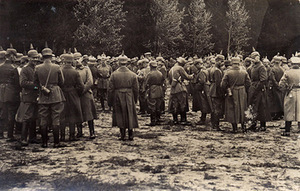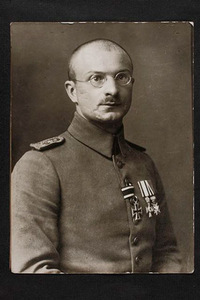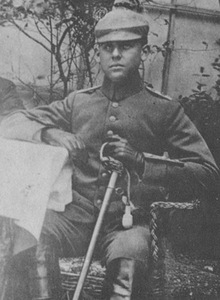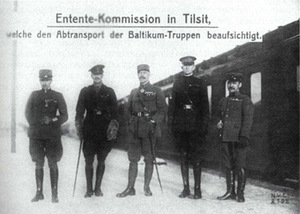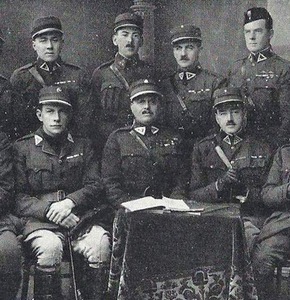The impact of the Great War to the emerging Lithuanian state 1513
In Brief: Legacy of the Great War in Lithuania is simply deleted, emphasizing it as a stage that led to country's independence without examining enemy armies that operated there, battles and biographies of notable personalities. Meanwhile Lithuania could boast about the imprints of European-wide celebrities, who led the country into a changed world. It is especially relevant now, since 2014 - 2018 were announced as years of the Great War.
Perhaps the most comprehensive account on the effects of the Great War to Lithuania was provided by Pranciškus Žadeikis (1869–1933) whose notes reflect the German army moving in to Skuodas in 1915, the forming of the occupation authority, daily relationships with soldiers, marauding armies and etc. Except battles, mobilization and inventory census his diary contains a few witty stories, for example, about the diseases that overcame the German soldiers in Skuodas. Apparently there are a lot of people in Skuodas who have sexual diseases. <...> Soldiers got infected with the mentioned diseases. Their superiors immediately ordered to arrest all of such "ladies" and take them to Liepojus hospital. Venereal diseases had become the symbol of the First World War, especially in the Western Front.
In the first years after the war Lithuania encountered geopolitical difficulties while trying to consolidate its independent state status. Although the war had ended there were still serious conflicts happening in the Central Eastern European region, especially around the borders (Lithuanian and Polish, Finnish and Russian). According to Polish historian Peter Wandycz, war status and the ongoing conflicts in that part of Europe influenced the shaping of the structure of the regional management. Both USA and Great Britain worn-out by the war did not expect tense relations in the continent, thus blamed the new countries of political immaturity and bad governing structure. Another important aspect was the threat of Bolshevism, therefore France based on 1919 plans tried to turn Poland into a guarantor of safety in the Central Eastern region. Lithuania would be federally connected to it.
Lithuanian financial and economic situation was developing quite differently. Probably the first successful H. A. Grant Watson agreement with our government was the proposal of the British company Great Northern Telegraph Company to build a telegraph line. It opened opportunities of successful British business in Lithuania. Despite that, financial situation was deteriorating and Lithuania was forced to ask Western Europe for a loan. Great Britain was supposed to guarantee for the young country and even though our government tried to show its reliability, it was not enough and the loan was constantly delayed.
Meanwhile, to France, Baltic countries, especially Lithuania, was a field of never ending competition with Great Britain. Differently than other allies, France saw Lithuania, Latvia and Estonia as different countries which geopolitically belonged to the Baltic region. Based on that, addressing political and economic issues French tried to look for economic and political links between these countries, often based on historical facts, for example the shared history of Lithuania and Poland.








